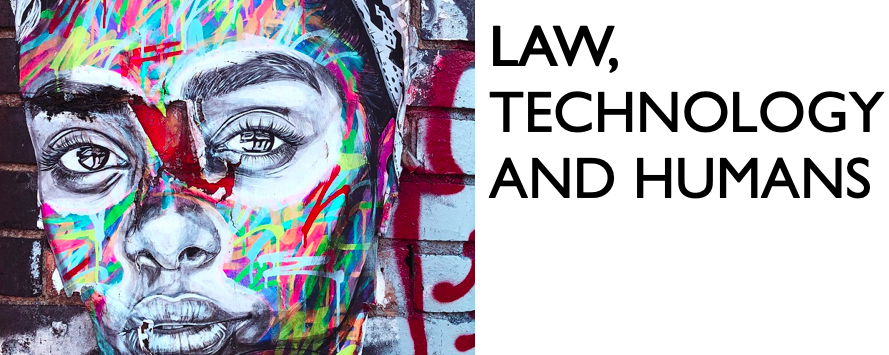This article is addressed, in a Manzoni-like manner, to “my 25 readers”: it does not have lofty or other pretensions, except that of raising a feeble voice of dissent on a controversial topic.
After reading the latest judgment of the Court of Justice of the European Union regarding Meta[1], on the subject of online advertising and its implications for the processing of personal data, I thought of sharing some reflections on the practical consequences that approach, which is cultural as much as it is legal, is likely to produce.
Every ideological battle has its sufferings to bear: it is important that digital consumers are aware of them, especially if they have been unknowingly enlisted in a war they had no intention of fighting.
One of the most enlightening readings in recent years dates back to the distant year 2009: it is the book Moral Panics and the Copyright Wars by William Patry[2]. As my 25 readers may infer, it has nothing to do with the protection of personal data or online advertising, but it emphasizes the role that “moral panic” can play in regulatory choices. Transforming simple market options (all abstractly possible) into a struggle between good and evil is the best way to convince people that, in truth, there is only one path that is practically feasible. The others lead to ruin and the dissolution of the fundamental values of society.
In this regard, the role of metaphors is vital in generating fears, suspicions, and doubts. We will return to this shortly.
Regarding the judgment of the Court of Justice, there are three points worth dwelling upon.
Firstly, the interpretation offered by the Court ends up annihilating the plurality of legal bases provided by the GDPR in order to de facto promote a single basis, which is the consent of the data subject. It is surprising, in fact, that far from limiting itself to evaluating the specific case, it ends up delving into the business model of a market operator, scrutinizing its perimeter. How else should one interpret, for example, the point in the decision where, with reference to content personalization, it is stated that «although such a personalisation is useful to the user, in so far as it enables the user, inter alia, to view content corresponding to a large extent to his or her interests, the fact remains that, subject to verification by the referring court, personalised content does not appear to be necessary in order to offer that user the services of the online social network. Those services may, where appropriate, be provided to the user in the form of an equivalent alternative which does not involve such a personalisation, such that the latter is not objectively indispensable for a purpose that is integral to those services»[3]?
Why should the judiciary decide the characteristics of the business model of a social network? Why, in an abstract sense, cannot the personalization of content and related advertisements be part of the contractual give-and-take and, as such, absolutely essential for access to services without the payment of monetary consideration?
Such a radical approach, as hypothesized by the Court of Justice, results in a significant reduction in the ability of companies operating in the digital sector to provide personalized and relevant services to users.
The second point of reflection is closely related to the first.
One of the side effects of the CJEU ruling could be the transition towards a pay-to-play future for many of the currently free digital services. Moreover, the Court itself implies this at point 150 of the judgment: «those users must be free to refuse individually, in the context of the contractual process, to give their consent to particular data processing operations not necessary for the performance of the contract, without being obliged to refrain entirely from using the service offered by the online social network operator, which means that those users are to be offered, if necessary for an appropriate fee, an equivalent alternative not accompanied by such data processing operations»[4].
As companies can no longer rely on personalized advertising or can only do so in a much more limited and challenging way, users may find themselves forced to pay for many of the digital services they currently enjoy for free.
This could lead to a reduction in accessibility for low-income users or an increase in costs for those who wish to continue using such services. Additionally, it could harm small and medium-sized enterprises that rely on online advertising to reach their target audience, as they may not be able to afford the costs of paid solutions.
Is this the future we hope for? Internet transformed into a gigantic pay-TV, or even worse, populated (as has already been happening for months with online newspapers) with services where consent to profiling represents the alternative to monetary payment? In a scenario bordering on the surreal, that “spontaneous” consent is considered perfectly in line with the GDPR, while resorting to different legal bases for processing, such as legitimate interest or contractual necessity, must be fought with every means possible.
The third and final point of reflection brings us back to the importance of metaphors in regulation.
The aforementioned judicial orientation does not arise out of nowhere. It has been nurtured by years of narrative about the so-called “surveillance society”, by transforming, especially in certain political circles, a simple business model into the Stasi of East Germany, the powerful secret service that monitored the behaviours of all citizens.
Browsing through the judgment, that cultural background emerges strongly («Furthermore, the processing at issue in the main proceedings is particularly extensive since it relates to potentially unlimited data and has a significant impact on the user, a large part – if not almost all – of whose online activities are monitored by Meta Platforms Ireland, which may give rise to the feeling that his or her private life is being continuously monitored»[5]).
We need to be politically incorrect, dear 25 readers. Online platforms have absolutely no interest in your private life. You are not that important. None of us are. What is interesting to them is not our physical bodies but one of our many ever-changing electronic bodies (to quote Stefano Rodotà), in which our identity is constantly composed and decomposed through online interactions.
Even if you are the most dedicated and enthusiastic fan of your football team, once you shift your focus solely towards discussing or engaging with Chinese cuisine recipes online, the chances of receiving offers to purchase the new season’s jersey or a stadium subscription will greatly decrease or cease entirely.
You are what you share. The day you understand this and stop sharing who you are, you will realize that there is no Stasi following your every move, but only companies trying to offer you advertisements based on your preferences. Nothing particularly innovative, it has been working like this since the advent of commercial television; the only difference is that now there is much more data available, and the potential spaces are infinite, resulting in reduced costs for advertisers.
Digital platforms have played a significant role in offering free and accessible services to billions of users worldwide. Personalized advertising has been one of the main drivers of this economic model.
Economic models are born, evolve, and die. We do not need ethical battles, but, if there are any, alternative models that are equally sustainable.
Otherwise, let’s resign ourselves: the future is pay-to-play.
[1] CJEU, Meta Platforms and Others, C-252/21 (2023).
[2] W. Patry, Moral Panics and the Copyright Wars, Oxford, 2009.
[3] Meta Platforms and Others, cit. §102.
[4] Id., §150.
[5] Id., §118.



